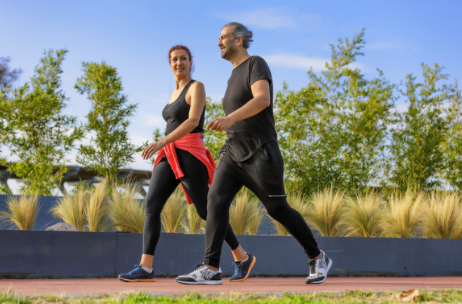
Benefits of Exercise for Alzheimer's
—Jill Fandrich, PharmD, CRPh
Exercise has been proven to have a multitude of benefits for individuals with Alzheimer's disease. Here are some of the main advantages:
1. Improved cognitive function - Regular physical activity may enhance cognition and memory in individuals with Alzheimer's. Exercise stimulates the release of chemicals in the brain that promote the growth of new neurons and improve overall brain health.
2. Slows disease progression - Exercise may help slow down the progression of Alzheimer's disease. Research suggests that staying physically active can delay the onset of symptoms and potentially reduce the risk of developing the disease.
3. Increased physical fitness - Regular exercise can improve cardiovascular health, increase strength, and enhance balance and flexibility. This can help individuals with Alzheimer's to maintain their independence for a longer period of time and reduce their risk of falls and other related complications.
4. Mood enhancement - Exercise positively impacts mood and emotional well-being. Physical activity releases endorphins, which are known as "feel-good" hormones that can help reduce feelings of depression, anxiety, and agitation commonly associated with Alzheimer's disease.
5. Enhanced social interaction - Participating in exercise programs, such as group classes or walking groups, can provide opportunities for social interaction and engagement. Maintaining social connections can significantly improve an individual's quality of life and help slow cognitive decline.
6. Improved sleep - Regular physical activity can help regulate sleep patterns and improve sleep quality. Better sleep can lead to improved cognitive function, better mood, and overall well-being for individuals with Alzheimer's disease.
7. Stress reduction - Exercise has stress-reducing effects and can help individuals with Alzheimer's cope with the challenges they may face. Physical activity can provide a healthy outlet for emotions, reduce feelings of stress, and improve overall mental resilience.
It is important to note that before starting any exercise program, individuals with Alzheimer's should consult with their healthcare provider to ensure they follow safe and appropriate guidelines.

The body achieves what the mind believes, and in the case of Alzheimer's, exercise becomes the key to preserving cognitive prowess. Through physical movement, we unlock a world of benefits for the brain, from enhancing memory retention to boosting overall cognitive function. So, let us lace up our shoes and embark on this journey of wellness, where each step we take is a step toward fighting Alzheimer's with resilient bodies and agile minds.
—Dr. Jill
Who will you share this with?
(Email addresses remain private.)
Add comment
Comments